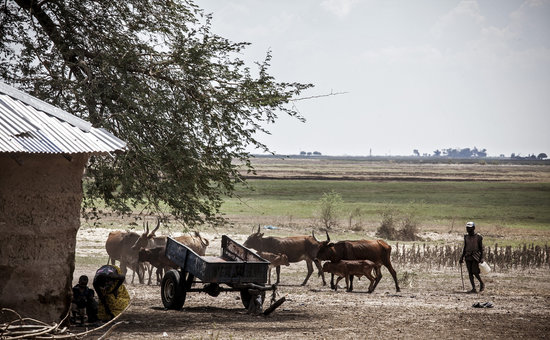Home > Parent company liability
The Zambian farmers who are suing a mining company in a British court
In January 2019, a group of Zambian farmers brought their fight for justice to the UK Supreme Court, in a case with far-reaching implications for multinational companies. Louise Eldridge explains the background of the case in a blog originally published by Africa is a Country.
[caption id="attachment_5257" align="alignleft" width="550"] Farmer with his livestock, Zambia. Image credit Felix Clay/Duckrabbit, 2012 via WorldFish Flickr (CC).[/caption]
Farmer with his livestock, Zambia. Image credit Felix Clay/Duckrabbit, 2012 via WorldFish Flickr (CC).[/caption]
access to justice Access to justice land grabs
Recent decisions in the UK on parent company liability cases show the need for law reform
This article was commissioned by the Business and Human Rights Resource Centre and originally published on their website The UK is home to some of the largest multinational corporations in the world operating through integrated networks of subsidiary companies and complex supply chains. Through their global activities, UK companies are often involved in human rights...
Access to justice access to justice Mining
Unilever: time for real leadership on human rights
Tuesday, July 17th, 2018. Marilyn Croser, CORE Director Unilever must provide remedy to the Kenyan workers and their families who suffered serious human rights abuses on the firm’s tea estate. In seeking to hide behind its corporate structure to avoid accountability, the company risks undermining the very principles that it claims to support. Last week...
Access to justice access to justice Appeals Court
Court of Appeal Decision Threatens to Close Route to Justice
Last week, CORE and 45 civil society organisations from around the world wrote to urge the UK Supreme Court to allow two Nigerian fishing communities to appeal against a ruling that oil giant Shell cannot be held responsible for pipeline spills that have devastated the environment in the Niger Delta. In February the Court of...
Access to justice Appeals Court parent company liability
NGOs Call on Unilever CEO to Match Rhetoric with Action
CORE, and NGOs REDRESS, Kituo Cha Sheria and the African Coalition for Corporate Accountability, have written to Unilever CEO Paul Polman to express their concern with how Unilever is handling a case brought by tea workers in Kenya who suffered horrific abuses under their watch. Unilever UK argue that they have very little to do...
Appeals Court Parent company liability parent company liability
Letter to Tanzanian President on Gold Mine Human Rights Abuses
Update
CORE, along with six leading human rights organisations, has signed a letter to the President of Tanzania, calling for an urgent investigation into human rights abuses at Acacia’s North Mara Gold mine. The letter highlights the numerous detailed reports and complaints about violent attacks by police and security at the mine. One Tanzanian parliamentary inquiry...
October 25th, 2017
| by Corporate Justice Coalition
Access to justice Corporate crime gold mine
Shell's corruption scandal starves Nigeria of its potential
Comment
Following news last week that it has delayed the clean-up of oil spills in the Niger Delta, multinational giant Shell is now embroiled in what campaigners are calling one of the biggest corruption scandals in the history of the oil sector.
April 11th, 2017
| by Ayesha Carmouche
Corporate crime corporate scandals corruption
 Farmer with his livestock, Zambia. Image credit Felix Clay/Duckrabbit, 2012 via WorldFish Flickr (CC).[/caption]
Farmer with his livestock, Zambia. Image credit Felix Clay/Duckrabbit, 2012 via WorldFish Flickr (CC).[/caption]

